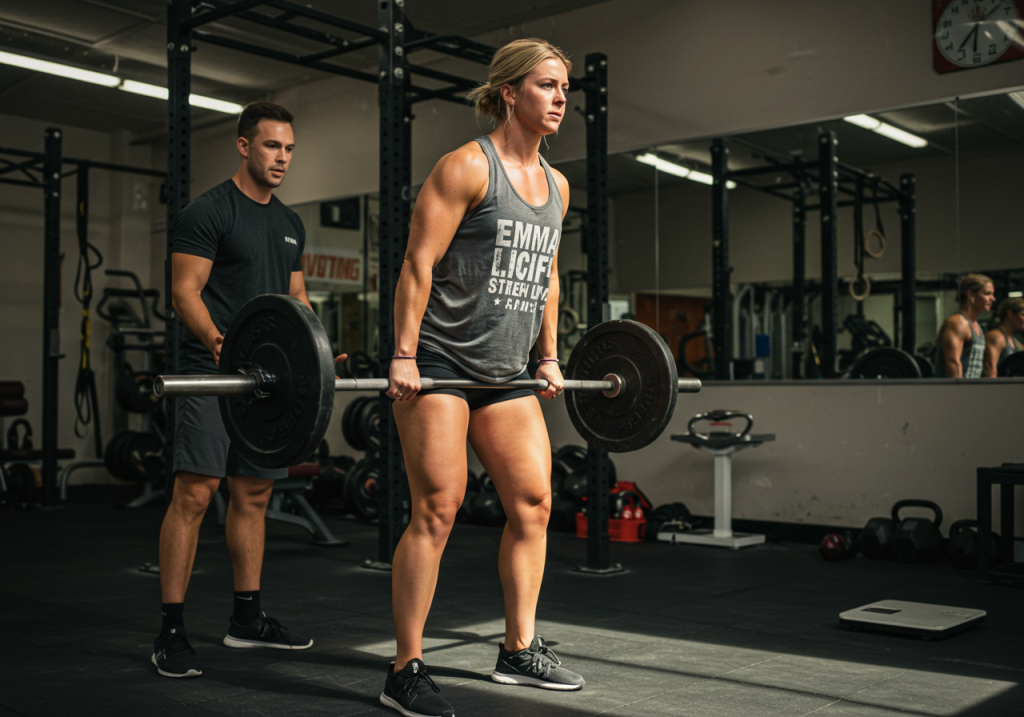What’s the Difference Between Weight Loss and Fat Loss?

When it comes to getting healthier or fitting into those favorite jeans, people often toss around terms like “weight loss” and “fat loss” as if they’re interchangeable. But here’s the kicker—they’re not! Understanding what’s the difference between weight loss and fat loss can completely shift how you approach your fitness goals. So, let’s dive into what these terms really mean and why they matter.
Weight loss is all about the number you see when you step on the scale. It’s a measure of your total body weight, which includes everything: fat, muscle, water, bones, and even that hefty sandwich you had for lunch. If you’ve ever tried a crash diet or skipped meals to drop a few pounds fast, you might’ve noticed the scale dip quickly. That’s exciting at first, but here’s the catch—you could be losing muscle or water instead of just fat. It’s a bit like trying to clean out your garage by tossing everything into a pile without sorting it. Sure, the space looks emptier, but you haven’t really tackled the clutter you meant to get rid of. That’s weight loss in a nutshell—it’s broad, sometimes messy, and not always strategic.

Fat loss, on the other hand, is a more precise game plan. It’s about targeting the excess body fat you want to shed while keeping your muscle intact—or even building more of it. Imagine you’re refinishing a piece of furniture: you’re sanding down the rough spots (fat) while preserving the sturdy frame (muscle) that holds it all together. To achieve fat loss, you’d typically combine strength training with a nutritious diet that supports your body’s needs. The result? A leaner, stronger you—without sacrificing the good stuff that keeps your metabolism humming. So, what’s the difference between weight loss and fat loss? One’s a broad sweep, and the other’s a focused mission.
Why should you care? Muscle plays a huge role in how efficiently your body burns calories. If you’re only chasing a lower number on the scale, you might end up lighter but softer, less toned, and even sluggish—especially if muscle takes the hit instead of fat. Picture this: two people could weigh the same, but one’s fit and muscular while the other’s carrying more fat. Who do you think feels better day-to-day? That’s why knowing what’s the difference between weight loss and fat loss can steer you toward results that last—not just quick fixes.
Weight Loss vs. Fat Loss: Unpacking the Myths for a Healthier Tomorrow
Let’s bust some myths wide open. Weight loss often gets glamorized as the ultimate goal, but it’s not always what it seems. When that scale number drops, it might be water weight vanishing after a salty meal or muscle fading from an overly restrictive diet. It’s like polishing your car without checking the engine—you might look shiny on the outside, but the performance could stall. That’s why understanding what’s the difference between weight loss and fat loss is so crucial for long-term health.
Fat loss, by contrast, is about precision. It’s shedding the fat that’s been hanging out in all the wrong places while keeping your muscle strong and functional. Think of it like pruning a tree: you’re trimming the excess branches to let the healthy ones thrive. This approach takes a bit more effort—think balanced meals and regular workouts—but the payoff is a body that looks and feels fantastic, even if the scale doesn’t budge as much as you’d hoped.
Here’s where calories come into play. Both weight loss and fat loss require a calorie deficit—burning more than you eat—but the how matters. Slash calories too drastically, and your body might start breaking down muscle for energy instead of tapping into fat stores. It’s like running a marathon with no water breaks; you’ll get somewhere, but not in the best shape. A smart deficit, paired with strength exercises, helps you protect muscle while melting fat away. So, what’s the difference between weight loss and fat loss? One can leave you guessing, while the other builds a clear path to a healthier you.

Beyond the Scale: Understanding the Key Differences Between Weight Loss and Fat Loss
The scale can be a tricky little device. Step on it, and it spits out a number that reflects everything your body’s holding onto—fat, muscle, water, you name it. Weight loss happens when that number goes down, but it doesn’t tell the whole story. Maybe you’re dehydrated after a sweaty workout, or perhaps you’ve lost some muscle from skipping protein. It’s like judging a book by its cover—sure, it’s lighter, but what’s inside might not be what you want.
Fat loss flips the script. It’s less about the scale and more about body composition—how much fat versus muscle you’re carrying. Imagine sculpting clay: you’re chiseling away the extra bits to reveal a stronger, more defined shape underneath. With fat loss, you might not see a huge drop in weight (muscle weighs more than fat, after all), but your waistline shrinks, your energy spikes, and your confidence soars. That’s the beauty of understanding what’s the difference between weight loss and fat loss—it’s about feeling amazing, not just weighing less.
This shift in focus can change everything. Instead of stressing over a stubborn scale, you start noticing how your clothes hug your body differently or how you’re lifting heavier weights at the gym. It’s a victory that goes beyond digits, proving that fat loss is the real game-changer for transforming how you look and feel.

The Weight Debate: Why Losing Fat is More Important Than Shedding Pounds
Let’s settle the debate: shedding pounds isn’t always the golden ticket to a healthier you. Weight loss can be a mixed bag—sometimes it’s fat, sometimes it’s muscle, and often it’s just water playing tricks on you. It’s like fishing with a wide net; you’ll catch something, but it might not be what you’re after. That’s why what’s the difference between weight loss and fat loss deserves a closer look.
Focusing on fat loss is about quality over quantity. It’s not just about seeing a lower number—it’s about reshaping your body for better health and a sharper look. When you lose fat instead of muscle, your metabolism stays revved up, your strength improves, and you feel more energized to tackle your day. Think of it like upgrading your phone: the old version might weigh less after you strip it down, but the new one’s packed with features that make it work better.
Plus, fat loss has perks that weight loss alone can’t promise. Dropping fat can lift your mood, boost your stamina, and even make your skin glow when paired with good nutrition. The scale might not always cheer you on, but when your favorite jeans slide on effortlessly, that’s a win worth celebrating. So, what’s the difference between weight loss and fat loss? One’s a fleeting number; the other’s a lasting transformation.

Weight Loss or Fat Loss? The Crucial Distinction That Could Change Your Fitness Journey
Weight loss can feel like a magic trick. One day you’re down five pounds, and you’re practically doing a happy dance. But wait—what’s really going on? That drop could be water, muscle, or a little fat, all bundled together. It’s dazzling at first, but the illusion fades if you’re not targeting what you really want to lose. That’s where understanding what’s the difference between weight loss and fat loss comes in clutch.
Fat loss is the real MVP here. It’s about evicting that stubborn fat from your hips, belly, or thighs while keeping your muscles strong and ready for action. Picture your body as a garden: weight loss is yanking out everything—weeds, flowers, the works—while fat loss is carefully tending to the blooms, pulling only what doesn’t belong. This takes a mix of smart eating (think protein and veggies) and workouts that build muscle while torching fat.
Why does this distinction matter? Because it shapes your goals. Obsess over the scale, and you might miss the real progress—like how you’re climbing stairs without huffing or rocking a tighter shirt with pride. Fat loss sets you up for a fitness journey that sticks, not one that fizzles out after a crash diet. It’s the difference between a sprint and a marathon—and who doesn’t want to cross that finish line feeling unstoppable?

Scaling the Truth: Why Weight Loss Isn’t Always the Same as Fat Loss
Here’s the raw truth: weight loss can be a bit of a liar. Drop a few pounds overnight, and you might think you’re winning—until you realize it’s just water from last night’s workout or muscle from skipping meals. It’s like celebrating a sale before checking the fine print. That’s why digging into what’s the difference between weight loss and fat loss can save you from chasing the wrong goal.
Fat loss is the slow-and-steady hero. It’s about chiseling away fat stores while keeping—or growing—your muscle mass. Here’s a twist: building muscle might even nudge the scale up a bit, since muscle’s denser than fat. But don’t panic—that extra muscle revs your metabolism, helping you burn more calories even when you’re Netflix-and-chilling. It’s a trade-off that pays off in spades, leaving you leaner and stronger.
So, next time the scale stalls, don’t sweat it. Check the mirror, measure your waist, or flex those biceps. Fat loss shows up in ways weight loss can’t always capture, proving that the real victory lies beyond the numbers.
Core Concepts: Differentiating Weight Loss from Fat Loss for Sustainable Health
Let’s keep it simple. Weight loss is your total body weight dropping—fat, muscle, water, all of it. Fat loss? That’s zooming in on the fat alone, leaving your muscles to thrive. Think of your body as a bucket: weight loss is dumping out whatever’s inside, while fat loss is scooping out just the stuff you don’t need. Understanding what’s the difference between weight loss and fat loss is the first step to sustainable health.
Here’s why it’s a big deal: muscle keeps your metabolism firing. Lose too much of it, and your body’s calorie-burning engine slows down—like trying to cook on a low flame. For lasting results, aim for fat loss with a combo of strength training and a diet rich in nutrients. It’s not about starving yourself; it’s about fueling up smartly to shed fat and keep muscle.

The takeaway? Don’t let the scale boss you around. Focus on fat loss, and you’ll build a body that’s not just lighter, but healthier and more resilient. That’s the kind of change that sticks around for the long haul.




